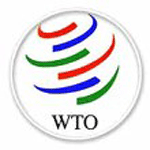Published on Tue, 2022-02-01 14:58
Following the adoption of the 2030 Agenda for Sustainable Development, the United Nations Economic and Social Council (ECOSOC) embarked on an effort to harmonize UN Development System (UNDS) activities with the 2030 Agenda and its SDGs as well as system-wide pressure for greater country ownership of in-country activities. Part of this process includes the 2017 Quadrennial Comprehensive Policy Review (A/RES/71/243) and ongoing reform proposals for the UNDS, all aimed at improving the quality of development and meeting the needs and priorities of host countries and donor governments. |
Published on Mon, 2022-01-24 00:00
China has said that it steadfastly supports the least-developed countries (LDCs) during their accession to the World Trade Organization as well as their integration into the global trading system, suggesting that the LDCs are facing several problems in their bid to join the rules-based, member-driven, inter-governmental organization. At a virtual "tenth China Round Table on WTO accessions" held at the WTO on 18-20 January highlighting the key achievements of "China's Least Developed Countries (LDCs) and Accessions Programme" (the China Programme), China elaborated on the specific problems and difficulties being encountered by the LDCs during their WTO accession process. |
Published on Tue, 2022-01-11 08:19
The UN’s highly-ambitious goal of eradicating extreme poverty by 2030 has been severely undermined by a rash of problems worldwide, including an escalating coronavirus pandemic, continued widespread military conflicts and the devastating impact of climate change. According to published estimates, more than 700 million people have been living in poverty around the world, surviving on less than $1.90 a day. But the fast-spreading pandemic, whose origins go back to December 2019, has been singled out as the primary reason for a rise in global poverty– for the first time in 20 years. |
Published on Tue, 2021-12-14 00:00
Negotiations are advancing swiftly to conclude the draft "Doha Programme of Action for Least Developed Countries", which has evolved into a strikingly weakened outcome document, said sources familiar with the development. The draft Doha Programme of Action (DPOA) for the decade 2022-2031 will be adopted by the upcoming Fifth United Nations Conference on the Least Developed Countries (LDC5), scheduled for 23-27 January 2022 in Doha, Qatar, at the Heads of State/Government level. |
Published on Mon, 2021-11-22 19:26
Against the backdrop of COVID-19’s ongoing impact on economies and societies worldwide, the United Nations is bringing the lens of COVID-19 recovery to its High level meetings. September saw the launch of the UN Secretary-General’s ‘Our Common Agenda on 12 September’, the opening of the UN General Debate on 14 September and a series of High-level meetings ranging from sustainable development to nuclear disarmament. |
SUSCRIBE TO OUR NEWSLETTER






